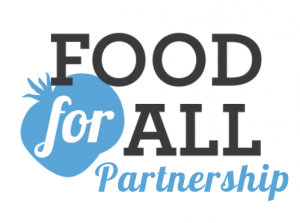 UNC-Chapel Hill’s Food for All Partnership convened an urgent virtual meeting on March 18 to discuss the impact of COVID-19 on food systems in North Carolina and potential responses. The partnership is a multidisciplinary committee of academic and community members who regularly meet to discuss food-related efforts on campus and in the surrounding community. The Food for All Partnership is an extension of the university-wide theme Food for All: Local and Global Perspectives (2015-2018), now coordinated by the Center for Health Promotion and Disease Prevention (HPDP).
UNC-Chapel Hill’s Food for All Partnership convened an urgent virtual meeting on March 18 to discuss the impact of COVID-19 on food systems in North Carolina and potential responses. The partnership is a multidisciplinary committee of academic and community members who regularly meet to discuss food-related efforts on campus and in the surrounding community. The Food for All Partnership is an extension of the university-wide theme Food for All: Local and Global Perspectives (2015-2018), now coordinated by the Center for Health Promotion and Disease Prevention (HPDP).
Attendees at the meeting included faculty from the School of Government, the Business School, the Global Food Research Program, and the Nutrition, Geography, and Anthropology Departments, along with students from the Nutrition Department, School of Medicine, and Public Policy program. Also attending were representatives from Edible Campus UNC and the Carolina Community Garden, local restaurants, and No Kid Hungry North Carolina
The HPDP No Kid Hungry NC team shared their web-based tool that communicates where meals are available for students since all schools statewide were closed due to COVID-19. Many students depend on school meals as their primary source of food, so the summer food service program at the Department of Public Instruction is now providing meals across the state. No Kid Hungry NC is joining with state agency leaders to support school districts and community partners who are working together to deliver meals to students.
Andrea Reusing, the chef and owner of Lantern Restaurant in Chapel Hill, N.C., discussed the challenges facing the restaurant industry, given North Carolina’s executive order closing restaurants to dine-in customers. Attendees discussed alternative ways of using dormant restaurant kitchens, such as producing meals for those who are struggling to access food while maintaining employment for some restaurant workers.
The group also considered policies related to food safety at food banks or pantries and farmers’ markets and possible supports for keeping them open and safe. Sarah Blacklin of NC Choices shared an online sales platform, called MeatSuite, for local meat producers who are looking for alternative ways to connect with customers. The platform was launched ahead of schedule in response to COVID-19. Blacklin, who works for the Center for Environmental Farming Systems, was unable to attend the virtual meeting but communicated with the group over email.
The Food for All Partnership plans to continue holding virtual meetings as a way for academic and community partners to work together to support getting healthy food to all during the COVID-19 pandemic.
For more information about the Food for All Partnership, visit their website: https://foodforall.web.unc.edu/. To contact the partnership, email foodforall@unc.edu.
To access an additional resource for farmers’ markets, see the COVID-19 Farmers Market Advocacy Toolkit assembled by the Carolina Farm Stewardship Association.
